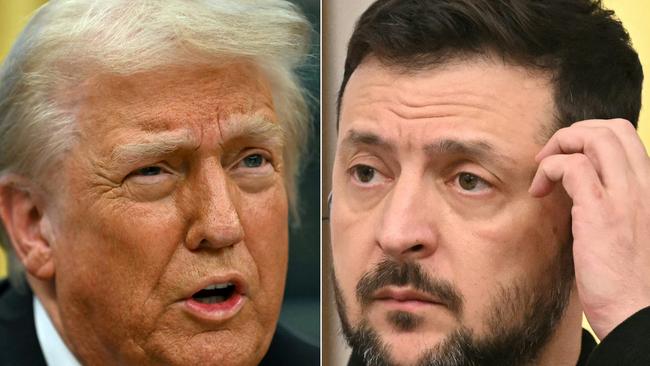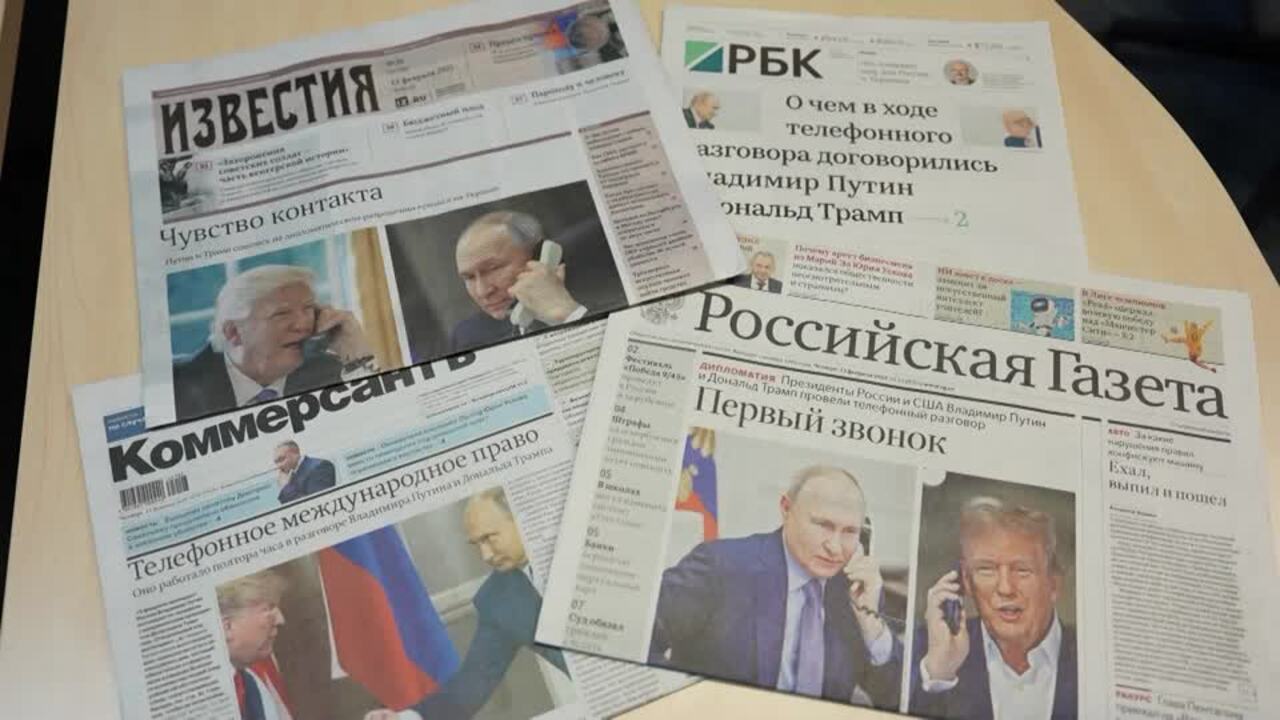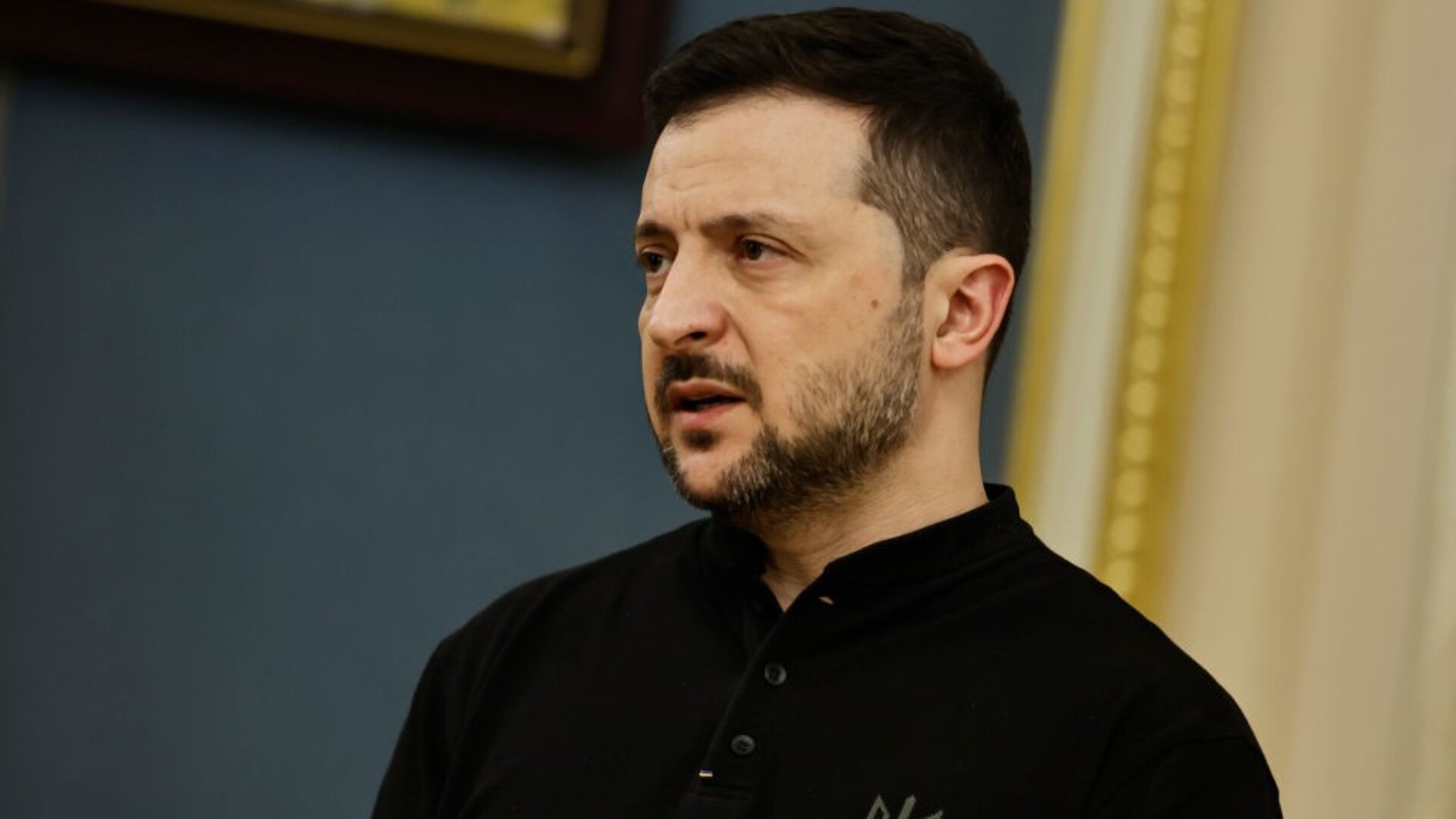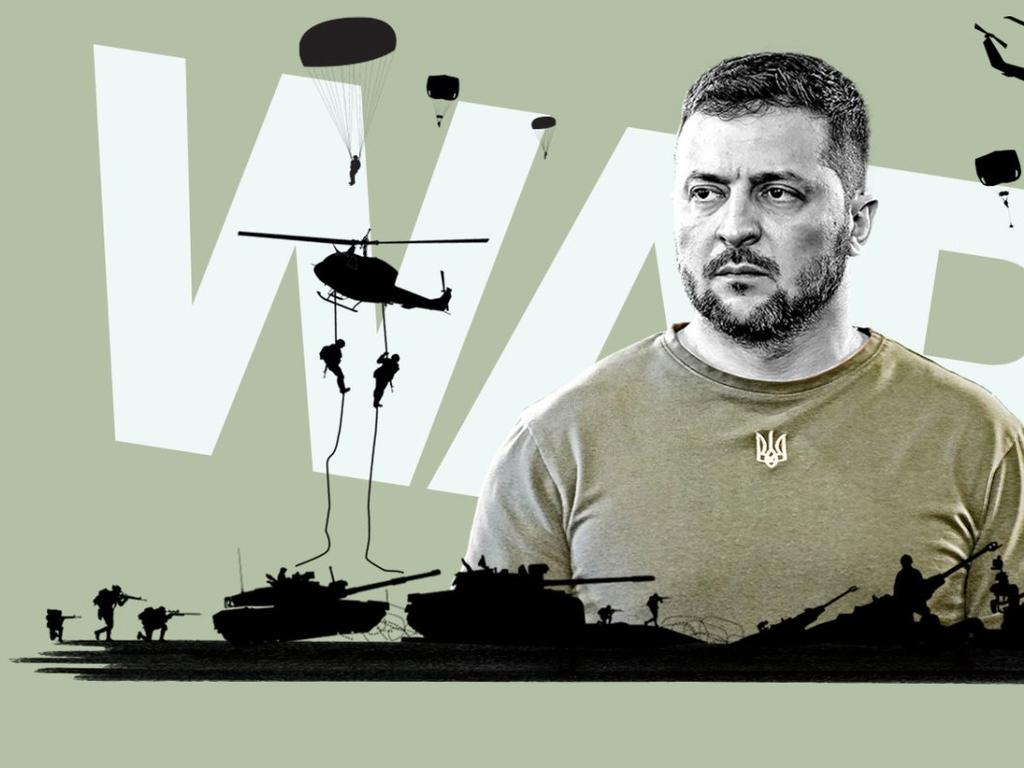Ukraine will seek to lock US into minerals deal at Munich summit

The Ukrainian leader, who admitted this week that he has barely had any contact with the White House since Trump’s re-election, learnt of the US president’s concession in a brief call on Wednesday night after a 90-minute phone conversation between the American and Russian leaders laying the ground for negotiations.
Zelensky will hold his first meeting with officials from the new administration, including Marco Rubio, the secretary of state, Pete Hegseth, the defence secretary, and JD Vance, the vice-president, at the Munich Security Conference. It is three years since he spoke there urging more support from allies in the face of an impending invasion.
Now Zelensky must convince Trump not to end military and financial support for Kyiv and not to accept conditions being pushed by Moscow that could leave a dismembered Ukraine unable to defend itself against future Russian aggression.
On Wednesday he hosted Scott Bessent, the US treasury secretary, for talks to grant the US privileged access to Ukraine’s mineral wealth in an effort to persuade Washington to continue its support. Zelensky said he hoped a mineral deal could be signed this weekend, after Trump said that further aid to Ukraine would be conditional on exclusive access to its resources.
In Kyiv, the mood was grim as realisation seeped in that Trump appeared ready to negotiate directly with Putin over the heads of both Ukraine and the European partners whose troops Hegseth said would be required to police any ceasefire deal.

There was also alarm at Trump’s suggestion that Ukraine needed to hold elections. Russia has previously spelt out a three-step process towards ending the war: an initial ceasefire, followed by elections and only after that a binding truce.
Under Ukraine’s constitution, elections were suspended with the declaration of martial law that followed the 2022 invasion; Zelensky’s five-year term, which would have expired last May, was extended. Government and opposition figures alike have warned that Putin is seeking elections to destabilise Ukraine and potentially replace Zelensky with a more Russia-friendly alternative.
Asked if Zelensky would be forced to cede territory to Russia, Trump questioned if he would even be leading Ukraine through the negotiations. “He’s going to have to do what he’s going to have to do,” he said. “If he’s still there. His poll numbers aren’t great, to put it mildly.”
Oleksandr Merezhko, an MP from Zelensky’s Servant of the People party, called the demand for elections “an extremely dangerous narrative promoted by Putin”, adding: “We can hold elections only when we feel that we are safe, that we are out of the woods. Otherwise the winner will be Putin.”

His warnings were echoed by Zelensky’s political opponents. Inna Sovsun of the Golos party said: “In the middle of a war, it is impossible, and I’m saying that as the member of parliament from the opposition.
“Zelensky is the president according to our own constitution and our constitution does not allow us to conduct elections during martial law. So asking us to do that is basically asking us to violate our own constitution, which is not what a democracy should be doing.
“We are not Russia – we have a history of conducting elections. We are on our sixth president. Russia is only on its second and a half.”
The approval ratings of 90 per cent that Zelensky enjoyed at the beginning of the war have slumped to about 50 per cent, lower still when surveyed against potential competitors, including his two opponents in 2019, the pro-western former president Petro Poroshenko and the former prime minister Yulia Tymoshenko, both of whom have been in contact with Trump’s team.
On Wednesday Poroshenko was sanctioned by Zelensky’s government on suspicion of high treason. Volodymyr Aryev, a former MP who remains close to Poroshenko, said the move undermined national unity and democracy – but his harshest criticism was for Putin and Trump, the “one dictator and one authoritarian who would like to share Ukraine between the United States and Russia”.
On the front line, there was dismay that their comrades’ sacrifices may end in a Russian victory over the territories to the east. “We lost so many of our people since 2014 that all these talks about negotiations with Russia are just heartbreaking,” one marine outside Pokrovsk said.
Others simply prayed for an end to war, saying the West had already abandoned them. “Right now, we are completely dependent on our foreign partners,” Oleksander, 42, a National Guard officer, said. “We have far fewer people and weapons than them, and no one is going to fight for us. We lost our agency a long time ago.”
(Additional reporting by Vika Sybir)
The Times





President Zelensky faces his toughest negotiation yet, seeking to persuade the United States not to sell Kyiv out to Moscow after President Trump conceded substantial ground to President Putin before talks to end the war.